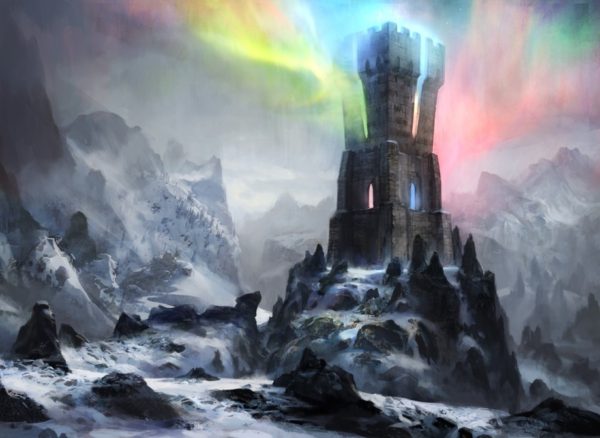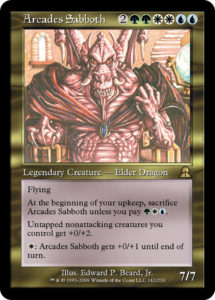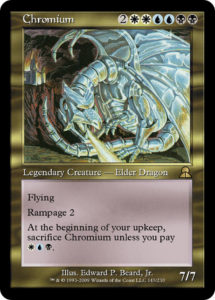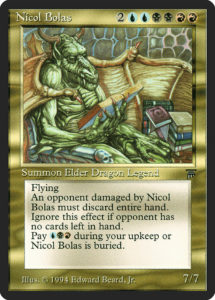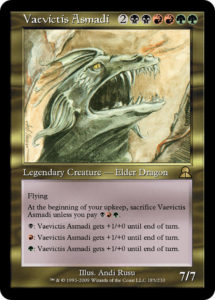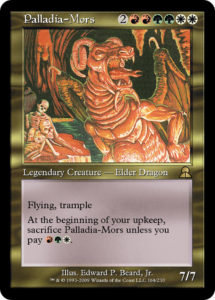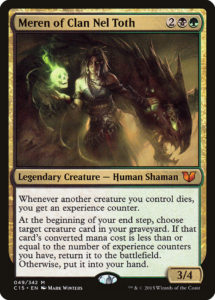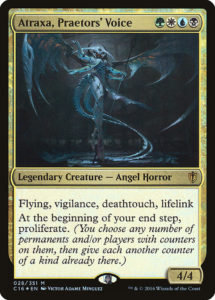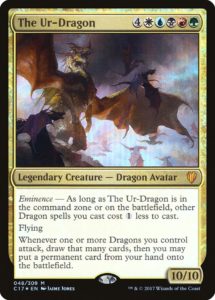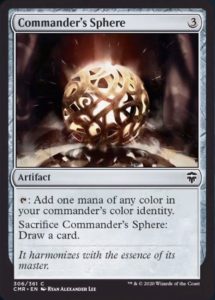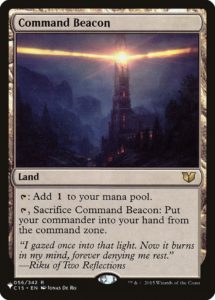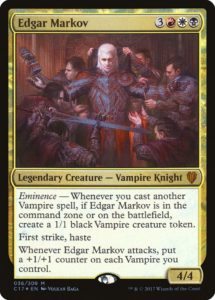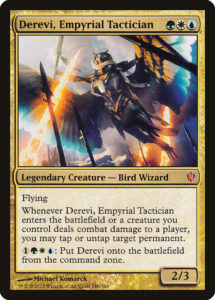Hello Oathbreaker players, and Happy Oathtober! With Zendikar Top 10 season over and my shoulder mostly-healed, I’m excited to finally be back to my old writing routine. The vast majority of my articles revolve around MTG cards and Oathbreaker decks, but I’ve decided to do something a little different for this week. The last couple of weeks have been especially trying for the MTG community as a whole, partially due to some recent decisions by Wizards of the Coast (WOTC) and partially due to some players’ toxic reactions to those decisions. If you happen to not be familiar with some of these recent events, do not worry, I will cover these later in this article.
But what does any of this discourse have to do with Oathbreaker? Well, these latest choices made by WOTC—and many of their other sets of decisions in the last year, if I’m being totally honest—have made me reconsider how much I actually want WOTC to recognize Oathbreaker as a format. To put it a bit more formally, I’ve begun to frequently ask myself the following question:
“Should I, as a player, want WOTC to make Oathbreaker a sanctioned Constructed format?”
The question of when WOTC will recognize Oathbreaker as a format—and whether they should do so—has been a question buzzing around in the Oathbreaker community since War of the Spark, and it’s become the basis for this week’s article. This particular question has also been bouncing around in my head for quite a while, and recent events have made me think about it more now than ever before. Today I’ll walk through my thought process with all of you in the hopes that it may provide us all a bit of added clarity. In order to answer this question, I believe we must 1) look back on how WOTC has embraced similar formats in the past, 2) examine the potential pros and cons of this choice based on that history, and 3) consider the inherent profit-based motivation that comes with WOTC being a corporation and how that motivation has influenced some of their recent decisions.
The History
I think the best place to start this examination is to look back on the history of Commander/Elder Dragon Highlander (EDH). Although EDH and Oathbreaker certainly have their differences, they do have one key trait in common; they’re both “grassroots” formats, or formats that were created by members of the MTG community outside of WOTC. EDH was created in 1996 by MTG judges that were looking for something to do in between games of competitive MTG (not so different from how many people use Oathbreaker as a format to play in between rounds of EDH). Although the original Elder Dragons were initially the only options for commanders/generals, this rule was later adapted to allow any legendary creature to be a commander. It’s no secret that EDH has since become one of the most popular ways to play MTG, but the format was not always so popular. In fact, EDH existed for almost a decade before WOTC finally embraced the format.
Since making EDH a sanctioned format, several different products have been designed specifically for the format (most notably the several sets of pre-constructed EDH decks). There are now many different options for Commanders in every color combination—so many that there’s even an entire website dedicated to keeping track of the popularity of various cards (aka edhrec.com). The existence of the pre-constructed decks has also led to the creation of numerous cards designed specifically for EDH like Arcane Signet and Command Tower. This particular type of design space has become a bit controversial in the MTG community, with several players going as far as to say that the format is worse off for the existence of these Commander-specific staples. Even still, it can not be denied that EDH has become one of MTG’s most popular formats in recent years—perhaps even the most popular format—since receiving WOTC’s support.
I feel that the popularity of EDH is almost taken for granted nowadays, but it’s important to remember that EDH was once no more popular than Oathbreaker is now. I’ve only been playing MTG for about 7 or 8 years, but I can still remember the days when EDH was looked down upon by many players as a sort of “joke format”, even after becoming a sanctioned format. I had friends and followed content creators that would continually poke fun at the inherent “jankiness” of the format and how even the worst cards were seemingly playable in Commander. Ironically enough, that ability to make otherwise-clunky cards work well is part of what has made EDH so popular in the long run.
The Pros & Cons
By looking back on how EDH has developed in the last few decades, it’s pretty easy to see how becoming a sanctioned format could help out Oathbreaker and the Oathbreaker community. Sanctioned formats receive more official MTG events both at individual LGS’s (local game stores) and at larger gatherings like Grands Prix. It’s also likely that Oathbreaker would become a playable format on MTGO if it were to receive WOTC’s support. The increase in number of these in-person and online events would heighten the popularity of the format, which would in turn create a higher demand for Oathbreaker content. It’s also worth mentioning that if WOTC began to support Oathbreaker as a format, then WOTC would potentially feel inclined to print more planeswalkers of various color combinations, which would greatly help fill in the current deckbuilding gaps that still remain in the format.
All that being said, a growth in popularity from becoming a sanctioned format could certainly come with some downsides for Oathbreaker as well. The sheer size of the EDH community is very convenient when it comes to finding playgroups to sit down with, but that kind of immensity has brought along its fair share of conflicts. The large amount of EDH deckbuilding discussions have led to some “default” deckbuilding strategies, yet there are still several different opinions about what a game of Commander “should” look like. The vast variety of lists seems to constantly bring into question what counts as “casual” or “competitive”, or what a 1-to-10 scale of deck competitiveness should even look like. To top it all off, many larger arguments about the format tend to cause some kind of toxic backlash against the Commander Rules Committee and Commander Advisory Committee; there was recently even a small, brief movement within the EDH community to create a separate format called “Captain” simply because some players disagreed with a recent decision made by the Commander Rules Committee. I personally believe that Oathbreaker would prove to be just as capable of withstanding these struggles as EDH has over the years, but these potential downsides are still worth keeping in mind.
There is also the matter of format-specific cards such as Commander’s Sphere and Command Beacon. As I mentioned earlier, there are many EDH players that dislike how some cards are specifically designed for their format, and the same could eventually happen in Oathbreaker if WOTC chose to make it a sanctioned format. This isn’t to say that WOTC would immediately start churning out Oathbreaker pre-cons right after choosing to support Oathbreaker, but cards designed specifically for the format would certainly be a possibility farther down the line. I personally am not entirely against the idea of format-specific cards, particularly when it comes to cards like Arcane Signet and Commander’s Sphere that are designed to level a certain playing field (such as mana ramp) without becoming auto-includes in literally every deck. What I am not so much a fan of are mechanics like “Eminence” (see cards like Edgar Markov) that actively subvert the inherent deckbuilding/gameplay constraints of the format they’re designed for, and I wouldn’t want to see such concepts introduced to Oathbreaker.
The Corporation
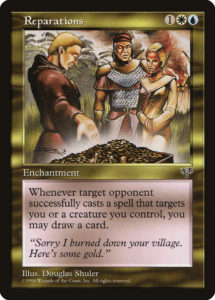
I’d also like to take a minute to talk about WOTC themselves, or more specifically some of their recent business decisions in regards to MTG. Although it occurred about a week and a half ago, the idea of this article was originally inspired by the announcement of the new Secret Lair themed around The Walking Dead (the original announcement linked here). This product announcement has since led to perhaps the most community backlash against an MTG product in recent history, for several different reasons. For one thing, Secret Lair TWD is the first Secret Lair to be made up of mechanically unique cards that have currently only been printed for this specific product. It will also be a bit tricky to find reprint opportunities for these cards since every card in Secret Lair TWD is specifically flavored after TWD TV-series. This kind of product isn’t equally available to all MTG players either since it will only ship to a few specific countries. These are only a handful of the reasons that Secret Lair TWD is such a problematic product, and if you would like to see it analyzed in more detail then I highly recommend checking out The Professor’s recent video on it.
This latest MTG product reminded me yet again that WOTC is a corporation that is ultimately motivated by profit, which is not inherently a negative quality. That being said, this new Secret Lair is just one of several products released in the last handful of years that appear to be pretty blatant “cash-grabs” with little regard for the game’s overall health. Even worse, this particular product sets a very dangerous precedent for MTG as a whole (again, I’d take a look at The Professor’s video explanation if you haven’t already). In other words, this product announcement reminded me that WOTC is a company that is primarily interested in turning a profit, even at the expense of the health of MTG as a game. Quite frankly, it’s decisions like this that will occasionally make me glad that WOTC pays no attention to Oathbreaker.
My Overall Thoughts
- Positive Endorsement Is Possible: I do think it’s hypothetically possible for WOTC to endorse/sanction Oathbreaker as a format in a way that’s positive overall. A few nice first steps would be enabling Oathbreaker gameplay on MTGO and offering more incentives to play Oathbreaker in the forms of online events (and in-person events when COVID isn’t an issue). I could also see Oathbreaker preconstructed decks being a beneficial product if they focused on 1) filling in the format’s color-combo gaps, and 2) primarily using them as an opportunity to reprint format staples instead of printing a slough of new format-specific cards.
- Profit-Motivated Decisions Would Be More Likely: As optimistic as I would like to be, I can’t discount the fact that WOTC is still a corporation that has made many questionable decisions in recent years in the name of profit. If there’s one thing I’ve learned in my years as a Leadership/Organizational Skills Major, it’s this: individuals within a company may be capable of caring about people, but companies themselves are not. I don’t know much about the inner workings of WOTC specifically, but I would struggle to believe that the company’s continuing string of blunders is indicative of a need for anything other than systemic change within the organization. That kind of change doesn’t happen overnight, and until I see proof of such improvement I must assume that if WOTC were to sanction Oathbreaker as a format, they would eventually and inevitably milk it for all it’s worth regardless of the format’s health.
- Vote With Your Wallet, If You Can: As long as WOTC makes money off of products like Secret Lair TWD, they’ll keep making those types of products. Calling for systemic change within WOTC simply will not be enough on its own to discourage them from making decisions that hurt the game and its players. They have made it pretty clear with their actions that the company’s primary incentive is profit, so I believe that is what we as customers must appeal to if we want to see change. I personally have spent almost no money on MTG products in several months now and have kept most of my deckbuilding/gameplay to online/proxied games with friends. That being said, how other players choose to spend their money and play games with their friends is none of my business at the end of the day.
- Above All, Be Kind (And Don’t Be A Dingus): Proxying is obviously not an option for every player out there, and I ultimately won’t hold anything against players that continue to spend money on MTG. As with all my articles, these are ultimately just my own thoughts and opinions, and I want to be clear that I believe the most important part of MTG is the G, or the “Gathering”. Regardless of how exactly we like to play, most MTG players are just here to sit down with friends and have fun. Instead of attacking people that purchase products like Secret Lair TWD, I would recommend taking that time to practice clear communication with the rest of your playgroup. Talk about where you all stand with cards like the unique TWD cards, and collaborate to find solutions and compromises that make every player happy. Harassing people over their personal financial choices in regards to MTG won’t bring about any positive change, but being supportive and understanding of your fellow players will help ensure that you will always have a place to have fun playing MTG, regardless of WOTC’s decisions.
If there’s one thing I want readers to take away from this article, it’s this; fostering a healthy playspace and practicing clear communication will do more to affect the experiences of your playgroup than any decision made by WOTC. I personally still feel a bit relieved that WOTC hasn’t formally taken any interest in Oathbreaker as a format yet, but I do still hope that there will come a day that my view will change.
My opinion is ultimately one of many, and I’m sure you all have your own thoughts about all this. I’m not looking to start any toxic arguments with this article (though I certainly can’t stop the rest of the internet from trying). Even still, I would like to hear what y’all think about Oathbreaker in relation to WOTC. We’re all in this together, and I can proudly say that the vast majority of my interactions with the Oathbreaker community have been positive and constructive. Let’s keep that trend going!
About the author: My name is Alex Enders. I am a college student that’s been playing MTG for almost eight years, though I only recently began experimenting with writing content. My personal formats of choice are Oathbreaker, EDH, and draft. My other interests include music, education, and most things nerdy. You can find me on Twitter (@AAAEnders) or email me at aenders2112@gmail.com
